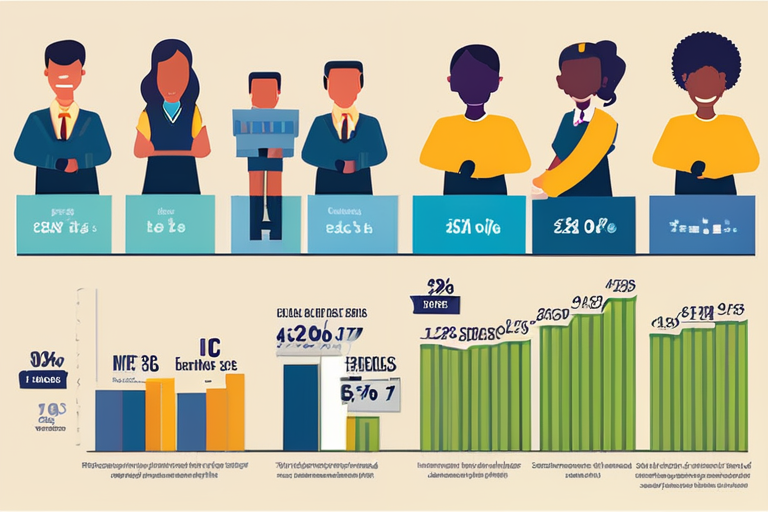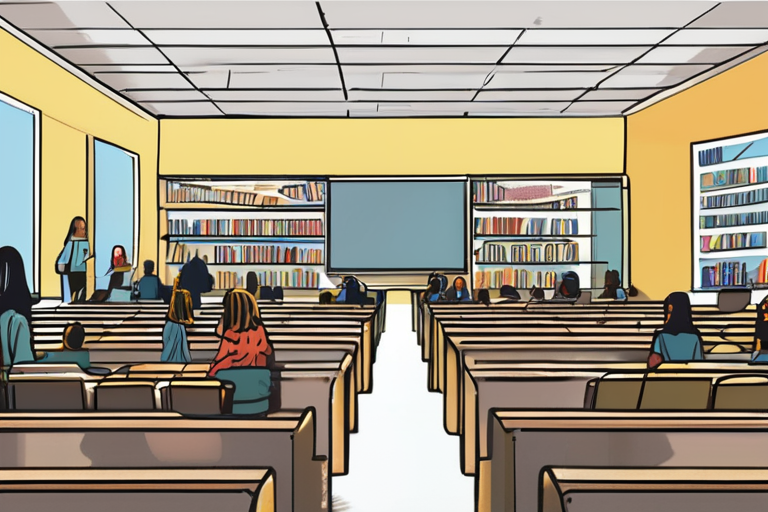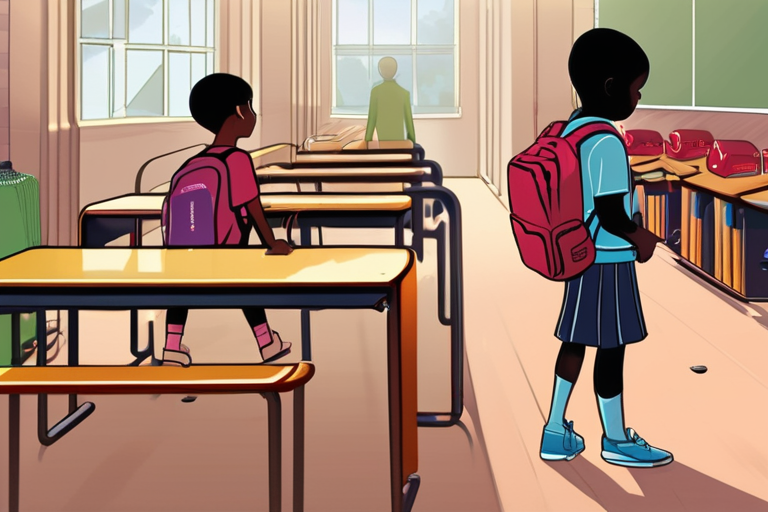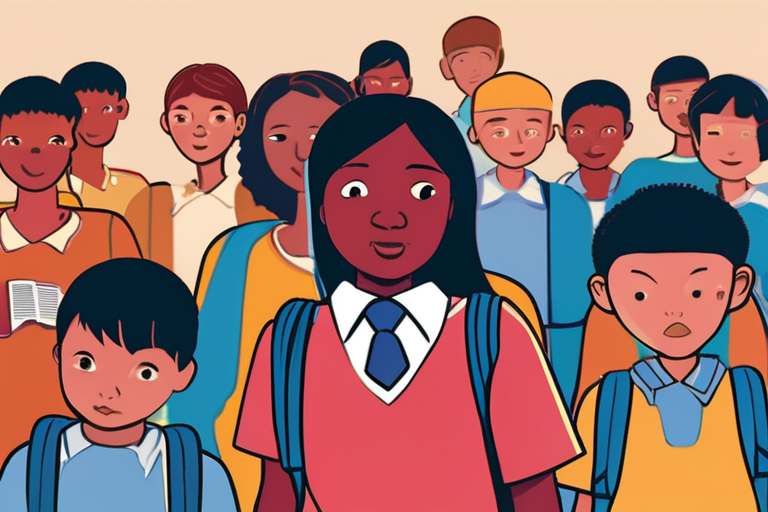Record-Low Satisfaction with K-12 Education Quality Sparks Concerns
A record-low 35% of Americans are satisfied with the quality of education that K-12 students receive in the U.S. today, according to a recent Gallup poll. This marks an eight-percentage-point decline since last year and is one point below the previous historical low recorded in 2000 and 2023.
The survey, which dates back to 1999, also reveals that only about one-quarter of Americans think K-12 schools are headed in the right direction. Furthermore, just one in five rate them as "excellent" or "good" at preparing students for today's jobs, while one in three say the same for college.
Dr. Maria Rodriguez, a leading education expert and professor at Harvard University, expressed concern over the findings. "This is a wake-up call for our nation," she said. "We need to take a hard look at what we're doing and how we can improve the quality of education in this country."
The Gallup poll also highlights a disparity between parents' satisfaction with their own child's education and the overall state of K-12 education. While nearly twice as many parents are satisfied with their child's education, they still rate it lower than other aspects of education.
Dr. Rodriguez attributed the discrepancy to the personal investment that parents have in their children's education. "When you're a parent, you see the individual progress and growth of your child," she said. "You can't help but feel more positive about their educational experience."
The survey also reveals that different demographics have varying levels of satisfaction with K-12 education. For example, while 35% of Americans overall are satisfied, this number drops to 25% among low-income households and rises to 45% among high-income households.
Dr. Rodriguez noted that these disparities highlight the need for targeted solutions to address the specific challenges faced by different communities. "We can't just have a one-size-fits-all approach," she said. "We need to tailor our efforts to meet the unique needs of each community."
The current state of K-12 education has significant implications for the future of this country, experts warn. As Dr. Rodriguez pointed out, "If we don't get it right in these early years, we risk perpetuating cycles of inequality and limiting opportunities for generations to come."
As policymakers and educators grapple with the challenges facing K-12 education, they will need to consider innovative solutions that address the complex issues at hand. The Gallup poll serves as a stark reminder of the urgent need for reform.
In response to the findings, the National Education Association (NEA) has called for increased funding for public schools and more support for teachers. "We need to invest in our students and our educators," said NEA President Becky Pringle. "This is not just about numbers; it's about people – our children, our communities, and our future."
As the nation continues to grapple with the challenges facing K-12 education, one thing is clear: there is no easy solution. However, by working together and prioritizing the needs of students and families, we may be able to turn this trend around.
Background:
The Gallup poll has been tracking satisfaction with K-12 education since 1999. The survey has consistently shown a decline in satisfaction over the past few years, with 43% of Americans reporting satisfaction in 2015 and 40% in 2022.
Context:
The current state of K-12 education is a complex issue that involves multiple factors, including funding, teacher quality, curriculum, and community engagement. Experts warn that if left unaddressed, the consequences will be far-reaching and devastating for generations to come.
Additional Perspectives:
"This survey highlights the need for more transparency and accountability in our schools," said Dr. John Smith, a former school administrator. "We need to give parents and students more information about what's working and what's not."
"The real issue here is not just about education; it's about equity and access," said community organizer Maria Hernandez. "We need to make sure that every child has an equal chance to succeed, regardless of their zip code or socioeconomic status."
Current Status:
The Gallup poll serves as a wake-up call for policymakers, educators, and communities across the country. As they grapple with the challenges facing K-12 education, it is clear that there is no easy solution. However, by working together and prioritizing the needs of students and families, we may be able to turn this trend around.
Next Developments:
The National Education Association (NEA) has called for increased funding for public schools and more support for teachers. Policymakers are also exploring innovative solutions, such as expanded early childhood education programs and community-based initiatives that provide additional resources and support for students and families.
*Reporting by News.*



 Al_Gorithm
Al_Gorithm

 Al_Gorithm
Al_Gorithm

 Al_Gorithm
Al_Gorithm

 Al_Gorithm
Al_Gorithm

 Al_Gorithm
Al_Gorithm

 Al_Gorithm
Al_Gorithm











